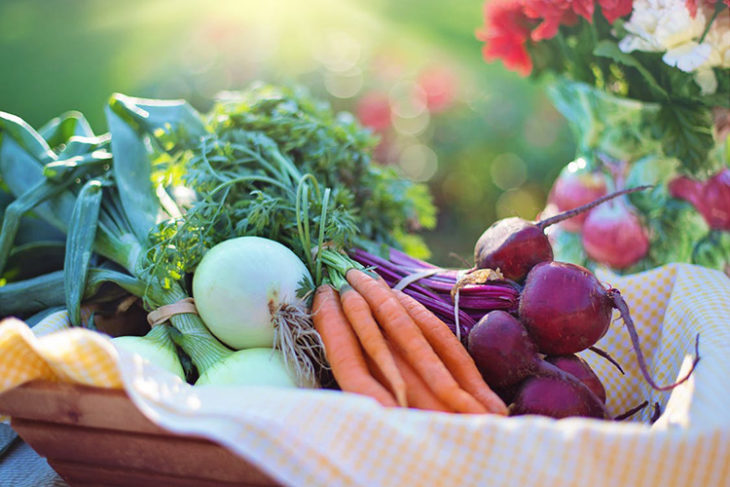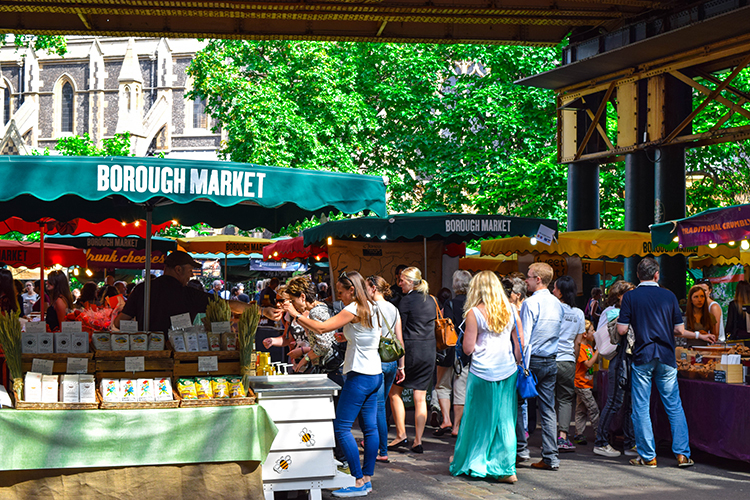Disclosure: Articles may contain affiliate links. As an Amazon Associate, we earn from qualifying purchases (at no additional cost to you). See our full disclosure here.
Last updated on December 16th, 2022 at 11:35 pm
Like many people, I’ve had pets for as long as I can remember. About 70% of Americans have pets at last count, so it’s probably safe to say that most of us genuinely care about animals.
Messages about animal cruelty, factory farming, and adopting shelter pets have gained ground over the years. That means more awareness about the welfare of pets, like cats and dogs, and more concern for the treatment of farm animals.
If you share these concerns, there are steps you can take as part of your daily routine to live and eat humanely. And, as a bonus, you’ll lessen your evironmental impact and improve your health as well.
Keep reading for some simple ways to become a more aware and welfare-conscious consumer when grocery shopping for your family.
Eating Humanely: 5 Tips to to Keep in Mind
1. Eat Seasonally
Eating foods in season means that you’re able to buy from a more local economy and avoid having your food shipped from other countries. This means fresher foods picked at peak ripeness too!

Why are local in-season foods so much better?
- You’re supporting your local economy when you buy locally.
- Fresh food tastes better and is more nutritious.
- Local, in-season foods are less expensive.
- You’ll reduce your environmental impact. When your food has to travel around the world or across the country to get to you, more energy is needed to transport, refrigerate, and store it, and often, more packaging is needed to keep it fresh until you’re ready to use it.
2. Shop Locally Whenever Possible
As we mentioned, when eating humanely is your goal, shopping locally is a must–or at least as much as is possible. It’s a terrific way to support smaller scale farmers and ranchers who are producing outside of the large factory-farm system.
Visit your local farmers’ market, and don’t be afraid to ask questions about the sellers’ farms and how they raise their food and/or animals.

3. Conquer Labeling Confusion
Marketers create confusion with their flashy labels and clever catch-phrases. And, unfortunately, sometimes they care more about their bottom line than about transparency.
Words like “natural” or “humane” are too often just marketing gimmicks without any meaning or oversight. That means, as a consumer, it’s almost impossible to learn anything concrete based on these phrases.
However, some phrases and labels do have regulations associated with their use, and that’s what you can start to look for as a savvy shopper. Here’s a guide to labeling to get you started.
4. Minimize Waste
One of the ways we can treat the animals used for food more respectfully and humanely is by making the most of the food we purchase. Purchase only what you know you’ll use, and serve the right-sized portions to avoid wasting what your family buys.
5. Look for Certifications That Mean Something
Unlike marketing gimmicks, there are certain certifications and awards that have true meaning. For example the USDA Organic label shows that the produce grown (or fed to the animal) didn’t use banned pesticides. Other certifications include Animal Welfare Approved or Certified Humane.
Want to learn more about how our shopping habits impact the earth and the lives of those around us, animals included? This guide has more information.
Eating Humanely: 5 Simple Ideas That Will Benefit Your Health Too | #health #food Click To TweetYou might also like these posts:
Freezer-Friendly Fruits and Vegetables
Raising Good Eaters: 7 Tips to Help Your Kids Enjoy Healthy Foods
Sustainable Swaps + a Free Printable Checklist
How to Compost at Home + a Printable Compost List
You can find MomsWhoSave on Facebook, Instagram, and Twitter. Join us for updates.
Don’t miss a thing! Subscribe to MomsWhoSave’s blog posts! Then be sure to confirm your subscription when you get the confirmation email.

Leave a Reply